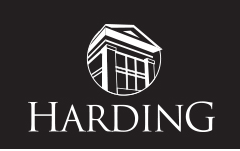
Engineering and Physics Faculty Research and Publications
Adapting Curricular Models for Local Service-learning to International Communities
Document Type
Conference Proceeding
Publication Date
6-2012
Abstract
Adapting Curricular Models for Local Service-Learning to International Communities Abstract In recent years, respected voices in both engineering industry and education communities have called for a globalization of undergraduate programs. The Newport Declaration, written by a geographically broad sampling of voices in engineering education, articulates this appeal and summarizes strikingly diverse motivations for this global emphasis held by those in industrial and educational engineering communities. Though the motivations for doing so may vary, globalizing engineering education is a noticeably rising trend in engineering education as marked by an increase of global programs. Though the need for situating engineering students in a global context is well-documented, the pragmatic difficulty of implementing such programs confronts engineering educators. This paper documents how a proven service-learning that was created to support local community partnerships and has delivered over 300 projects to the local community has been adapted to include global partnerships. The model is a curricular-based a model that supports vertically-integrated, multi-disciplinary, engineering service-learning projects at a large Midwestern university. Historically, this long-standing program has paired student design teams with local, community partners. The paper will document how these partnerships have been expanded to global communities. This paper will examine information from three case studies: (1)a project focused on designing energy-efficient housing with the local Habitat for Humanity chapter (2) a design to support a Habitat for Humanity building project in Haiti, and (3) the design of a cyber café for a rural in Haiti. Using these case studies, the study will discuss the efficacy and transferability of the curriculum to global projects as well as the challenges that arise with adapting this curriculum to an international scope. By investigating this service-learning curriculum through the lenses of globalization, this study will demonstrate a pliable and practicable model for service-learning in the global community.
Copyright held by
American Society for Engineering Education (ASEE)
Recommended Citation
Huff, James L., Abraham, Dulcy M., Zoltowski, Carla B., and Oakes, William C. (2012, June 10-13). Adapting curricular models for local service-learning to international communities [Paper presentation]. American Society for Engineering Education Conference. https://doi.org/10.18260/1-2--20890


Comments
This paper was presented at the 2012 American Society for Engineering Education Annual Conference & Exposition held June 10-13, 2012.